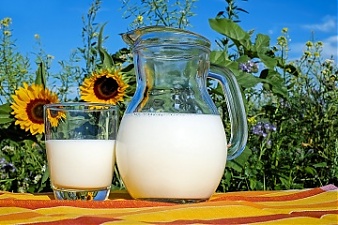Estonia, Export, Foodstuff, Latvia, Markets and Companies
International Internet Magazine. Baltic States news & analytics
Sunday, 11.05.2025, 06:20
Milk import to Estonia has not grown – chamber of agriculture
 Print version
Print version |
|---|
"The selection of dairy products at our stores is made up
predominantly of milk products made in Estonia, and consumer surveys show that
consumers in Estonia continue to prefer to buy dairy products made in Estonia.
Seventy to 80% of consumers prefer dairy products made in Estonia, with
Estonian drinking milk preferred by as much as 91% of consumers," Tiina
Saron, member of the management board of the Estonian Chamber of
Agriculture and Industry, told.
"Hence we cannot say that it is directly a problem, but Estonian
producers are keeping an eye on the situation and trying to maintain their
position on the home market through product and quality development,"
Saron said.
Janis
Solks, chairman of the Central Union of Latvian Milk Producers, said that the
share of Latvia-produced milk on the market is declining as the amount of
imported milk has increased substantially.
There are chain stores in Latvia which continue to buy milk products that
are not made in Latvia and sell them under private brands, Solks added.
"It wouldn't be a problem for us to make milk for the entire Latvia,
but the current situation is due to certain retailers' actions, although it is
unclear why they do it," he said.
Market protectionism in other countries is much stronger than in Latvia.
For instance, Finnish and Norwegian retail chains, some of which also operate
in Latvia, have a completely different attitude to their country and
compatriots, and they support local producers. According to Solks, market
protectionism also exists in Lithuania and Estonia, albeit it is not as strong
there as in Scandinavian countries.
The Latvian market accounts for approximately 25% of Estonia's milk
exports, and imports from Latvia account for approximately 25%. As an example
of the latter, Saron named Karums
curd snacks, which have been well-known in Estonia for a relatively long time.
Regarding cheeses, it is natural that people also buy imported cheese,
especially of the kinds that are not produced in Estonia. "Looking at
foreign trade statistics for the first half of the year, we can see that the
import of consumer products has grown 8% in volume terms and the import of
cheese has also increased 10%, but the import of butter has declined 26%,"
Saron said.








 «The Baltic Course» Is Sold and Stays in Business!
«The Baltic Course» Is Sold and Stays in Business!

